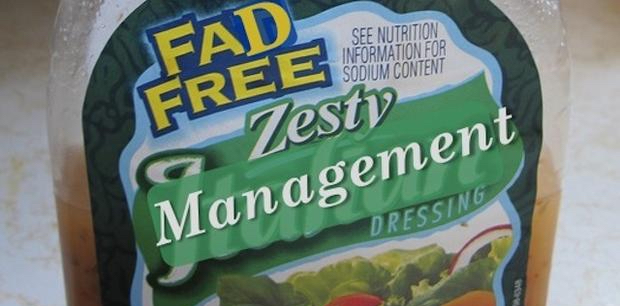
Diet crazes are as old as the hills. Beverly Hills, that is. ICYMI, author Judy Mazel wrote The Beverly Hills Diet back in 1981. Her theory was that weight gain came from undigested food. The book sold more than a million copies. And it was total BS.
We’ve since had the Atkins Diet, South Beach Diet, Low-Carb Diet, Hollywood Diet, Paleolithic or Caveman Diet, Acai Berry Diet, all sorts of cleansing diets, vegetarians and vegans, and the Whole30 program. Lately, it seems that everyone is going milk and gluten-free whether they’re lactose intolerant and have Celiac disease or not.
Meanwhile, a study published in The Journal of the American Medical Association (JAMA) a few years back suggested that a sensible diet based on healthy foods like fish, vegetables, fruits, nuts, beans, whole grains and healthy fats is far better than low-fat or low-carb diets. It’s the quality, not the quantity of the carbs and fat that matters. Well, duh.
The JAMA study was big news for about a week. Then everyone went back to their loony crazes.
We’ve come to expect that sort of quick fix mentality from the masses. I guess it’s human nature to follow cultural norms and the latest trends … even if they are dumb. But you wouldn’t expect that kind of fad-like behavior from corporate executives, would you? Time to wake up and smell the crazy in the c-suite.
There have been at least as many management fads as diet crazes over the years.
Remember core competency? How about outsourcing, downsizing, management by objective and management by walking around? Let’s not forget Good to Great, matrix management, Six Sigma and lean everything. The One Minute Manager was good in its time, but business is so fast-paced today, The One Nanosecond Manager is more like it.
Lately, it seems that executives are becoming more and more susceptible to whatever nonsense somebody decides to self-publish. If it sounds good and the social media echo chamber likes it, the next thing you know, it’s the next big thing. And consultants make big bucks off the stuff.
There’s employee engagement (really just employee satisfaction rebranded), self-managed organizations like Holacracy, emotional intelligence (EQ), leadership development, meditation, executive coaching and all things Steve Jobs. And my personal favorite, generational consulting, aka, what to do about the millennial problem.
The Wall Street Journal reports that American companies spent more than $60 million on millennial consultants in 2015. For what? To learn that members of the newest generation to hit the workforce have short attention spans, like flexible work schedules and want their work to have a purpose. What a racket.
One of the consultants, Dan Schawbel – author of the definitive personal branding book, Me 2.0 – advised Red Robin Gourmet Burgers to allow employees to take Friday afternoons off and ban Friday meetings. The company also has quarterly meetings at a local comedy club where execs do open mic duty mixing jokes with company news onstage.
No, I’m not making this up. Wish I was.
A friend forwarded a Harvard Business Review article declaring The Most Important Leadership Competencies to be: “Has high ethical and moral standards,” “Provides goals and objectives with loose guidelines,” “Clearly communicates expectations,” “Is committed to my ongoing training” and “Communicates often and openly.”
What a load of fluff. More like checkboxes off an HR review form of a line supervisor at Walmart. And get this. The “leadership consultant” who wrote the piece has her PhD in, wait for it, “marriage and family therapy.” Still, I bet she makes big bucks consulting for her Fortune 500 clients.
You just can’t make this stuff up, folks.
Maybe it’s just me, but I long for the days when people ate normal food, managers were managers and leaders were in the Boy Scouts. Corporate America needs to go on a fad-free management diet … and stay on it.
Image credit bsabarnowl via Flickr
A version of this originally appeared on foxbusiness.com.